Looking Up, 16-page English PDF Edition, Back Issues and Current Issue
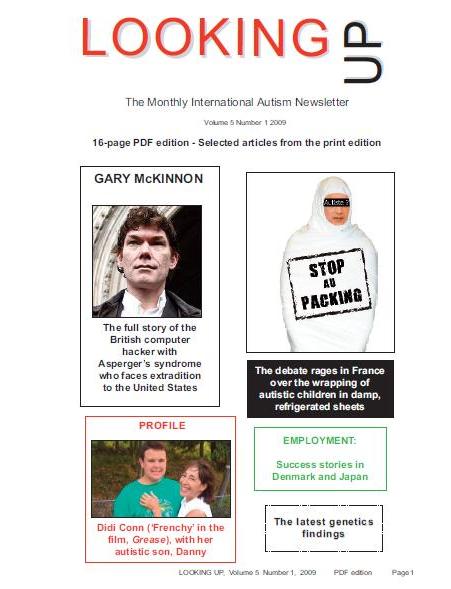
|
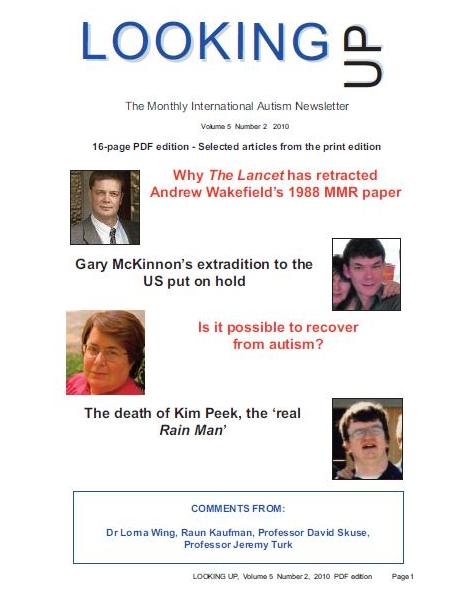
|
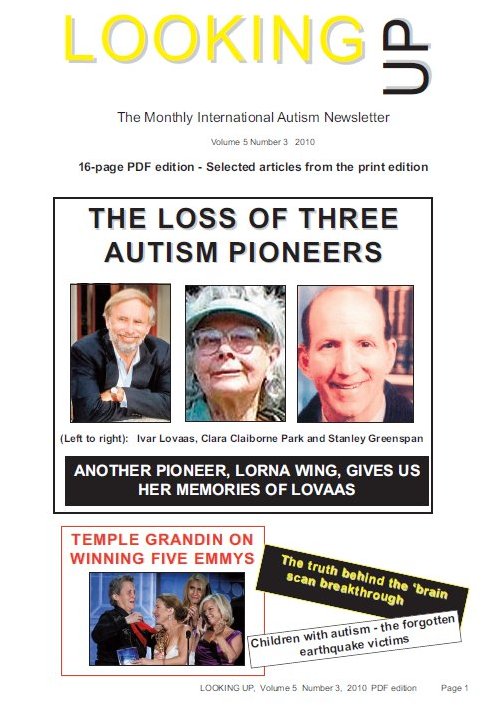
|
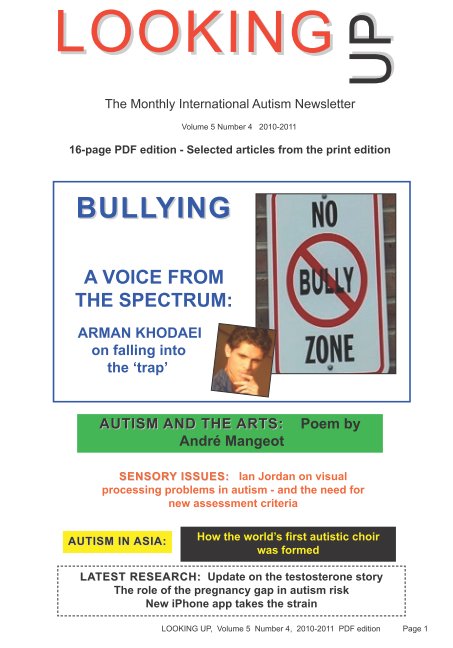
|
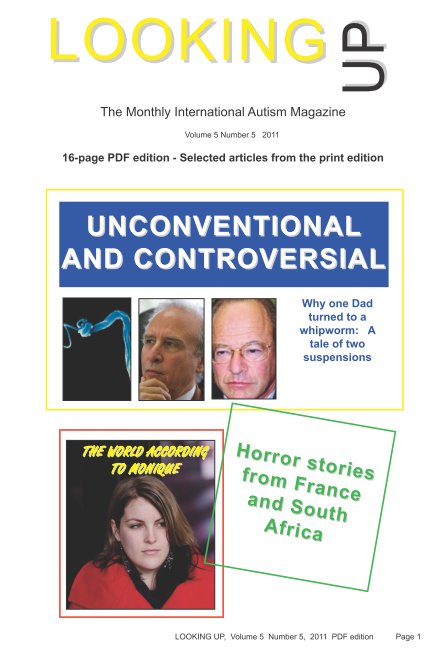
|
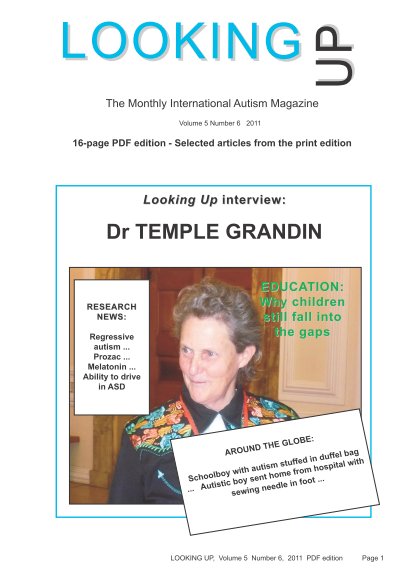
|
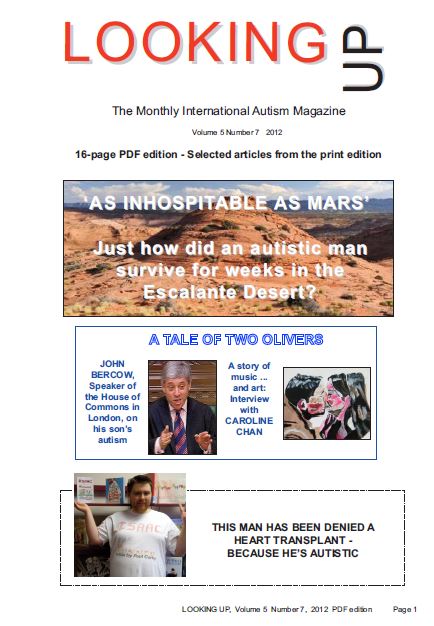
|
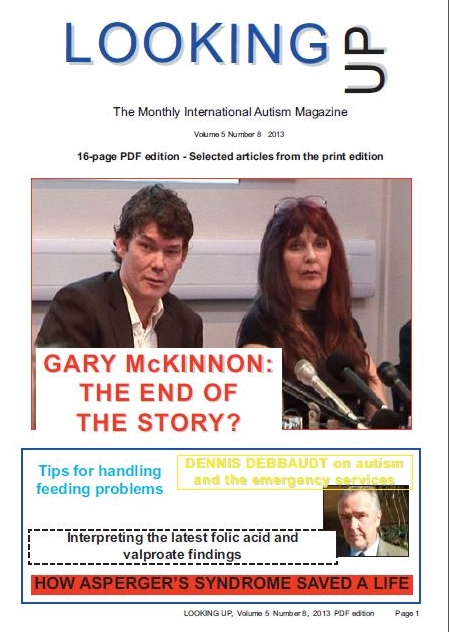
|
| Home page | Subscribe (print edition) | Selected articles | Our publications | Our mailing lists |
| PDF edition | Subscribe (PDF edition) | Back issue contents | Autism books | Contact us |
From Volume 4 Number 3
ADAM FEINSTEIN: You have become
very well-known recently for your theory that, on average, males have a
stronger drive to systemise - to analyse or construct a system - and
females a stronger drive to empathise, and that people on the autistic
spectrum show an exaggeration of the male profile. What do you say to
those critics of your empathising-systemising theory - and indeed your
Autism Quotient - who claim that they do not allow for change in a
person's condition over time?
Professor SIMON BARON-COHEN: What they are really asking is: are these
stable traits or are there fluctuations? No one has really done
developmental studies to see whether, with development in a typical
case, your empathising or systemising improves, for example with more
education or age. So we need longitudinal studies. It may be that, with
the right intervention, your empathy can improve. I don't know that the
measures themselves discount the possibility of change. In fact, it
would be quite interesting to use the same measures before and after a
particular intervention to see whether you do get improvements.
ADAM FEINSTEIN: Someone came up
to me today and said: "Simon Baron-Cohen is making a moral judgement
with his empathising-systemising theory. He is suggesting some people
are too systemising." How do you respond to that?
SIMON BARON-COHEN: I don't think there is a value judgment
or moral aspect to it. I think what the tests are revealing is that
people differ in their profiles and that one profile is not better or
worse than another. Some people spend a lot of time focused on systems
like their computer and very little time chatting about emotions. Other
people show the opposite.
ADAM
FEINSTEIN: Some people have
interpreted your theory as suggesting that people with autism do not
have empathy. I have spoken to a number of parents who say: "My
autistic child has too much empathy."
SIMON BARON-COHEN: People with autism I have met are not
unkind or uncaring. But it looks as though, on some of these tests,
they have difficulty picking up on other people's cues. If someone is
upset or bored, they may not notice it. Or they may say something that
upsets someone, when they did not intend it to happen. If they
have difficulties with empathy, this does
not mean that they do not care about other people. They may just have
difficulty in recognising the emotions in other people. But people I've
met with autism, when they discover they have upset someone, feel very
bad about it. They often have a very strong moral conscience. They care
about the environment, they care about people not breaking rules. It is
quite easy to take the research and to conclude that, if they have
empathy problems, they are somehow like psychopaths. That is not the
case. Psychopaths have a different type of empathy problem. Even if
they knew they were hurting another person, they would not care. In
autism, it is very different. If they knew they were hurting someone,
they would want to change that course of action ...
To read the entire article you need to order this back issue

|

|

|

|

|

|

|

|
| Current 40-page print edition issue | |||||||||||||||
|---|---|---|---|---|---|---|---|---|---|---|---|---|---|---|---|
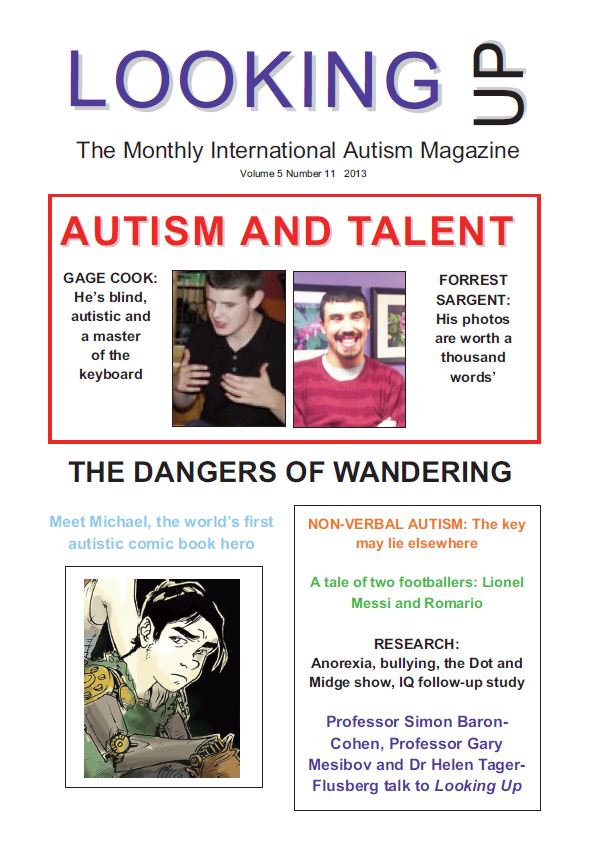
|
| ||||||||||||||
| PRINT EDITION BACK ISSUE CONTENTS AND FRONT COVERS | ||||||||||||||||||||||||||
|---|---|---|---|---|---|---|---|---|---|---|---|---|---|---|---|---|---|---|---|---|---|---|---|---|---|---|
| VOLUME 1, Number: | 1 | 2 | 3 | 4 | 5 | 6 | 7 | 8 | 9 | 10 | 11 | 12 | VOLUME 2, Number: | 1 | 2 | 3 | 4 | 5 | 6 | 7 | 8 | 9 | 10 | 11 | 12 | |
| VOLUME 3, Number: | 1 | 2 | 3 | 4 | 5 | 6 | 7 | 8 | 9 | 10 | 11 | 12 | VOLUME 4, Number: | 1 | 2 | 3 | 4 | 5 | 6 | 7 | 8 | 9 | 10 | 11 | 12 | |
| VOLUME 5, Number: | 1 | 2 | 3 | 4 | 5 | 6 | 7 | 8 | ||||||||||||||||||
| You can find our PDF EDITION CONTENTS AND COVERS on our PDF EDITION BACK ISSUES PAGE | ||||||||||||||||||||||||||
| Home page | Subscribe (print edition) | Selected articles | Our publications | Our mailing lists |
| PDF edition | Subscribe (PDF edition) | Back issue contents | Autism books | Contact us |